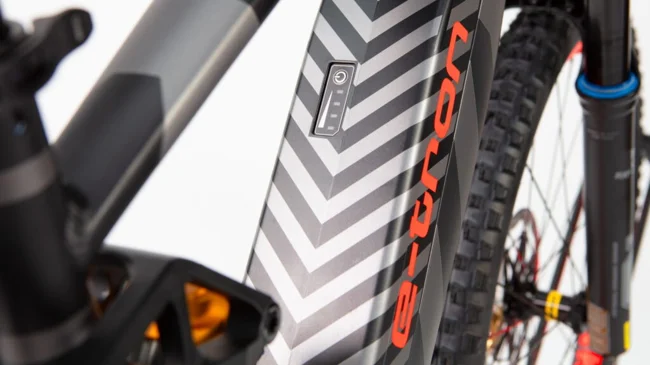The most affordable electric Audi e-tron is available with pedals

Audi’s New Electric Bike
German automaker Audi continues to expand its electric bike lineup with the introduction of the updated eMTB 2.0. This version features improved components and a lower starting price compared to its predecessor, making it more affordable than some traditional e-bikes that aren’t associated with luxury cars.
Key Features and Updates
The bike was developed in collaboration with Italian motorcycle and e-bike manufacturer Fantic. It retains the aluminum frame of the original Audi eMTB, but has received significant improvements to key components.
Improved drivetrain and braking system
The drivetrain now features a SRAM GX Eagle Transmission AXS electronic shifter and a SRAM XX SL Eagle 12-speed cassette for crisp, wireless shifting. The braking system features 220mm EPTA STAGE rotors up front and 203mm at the rear, along with Sunstar F.I.R.S.T. calipers for better control on descents.
Motor and battery
The electric motor remains the same, a 250W Brose S-MAG with up to 90Nm of torque. It’s powered by a 720Wh battery integrated into the frame. Riders can choose from four assist modes: Eco, Tour, Sport and Boost. The assist speed is limited to 20 miles per hour, and the range can vary from 12 to 90 miles depending on riding conditions.
Off-road design
The model has a so-called “mulatto” wheel configuration: 29-inch front and 27.5-inch rear, which helps overcome obstacles and increases maneuverability. Suspension is provided by an Öhlins RXF38 m.2 front fork and a TTX22m.2 rear shock absorber, each providing 180 mm of travel. A small digital display shows speed, assist level and battery status.
Additional options and availability
Audi offers additional accessories such as a helmet and hydration backpack for a complete package. Deliveries of the bikes have already begun, and the first units are arriving at customers.
This model demonstrates how automakers are increasingly investing in alternative transportation, combining automotive technology with the bicycle industry. Increasing competition in the e-bike market could help further improve performance and reduce prices, making such products attractive to a wider range of consumers.






























